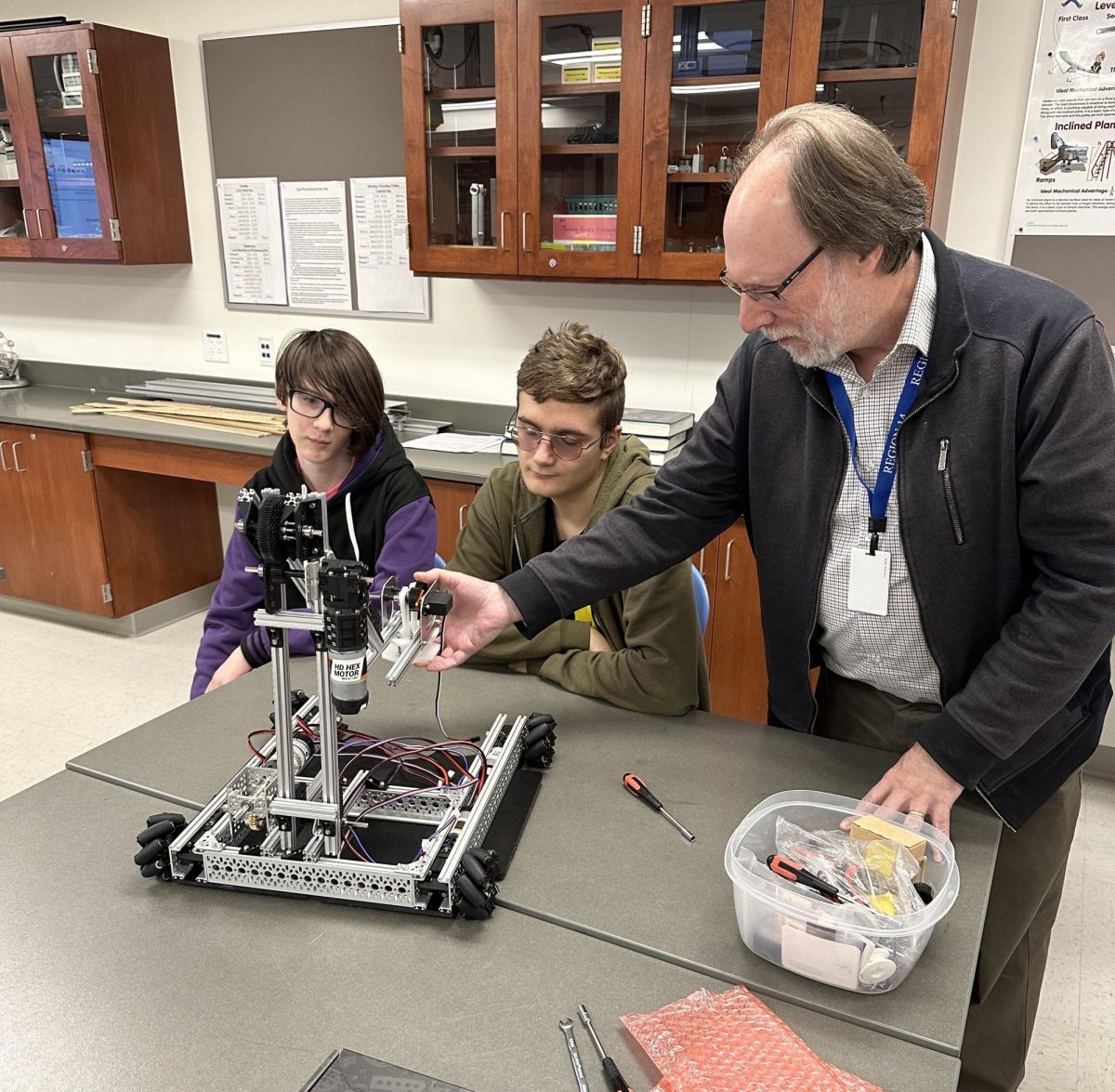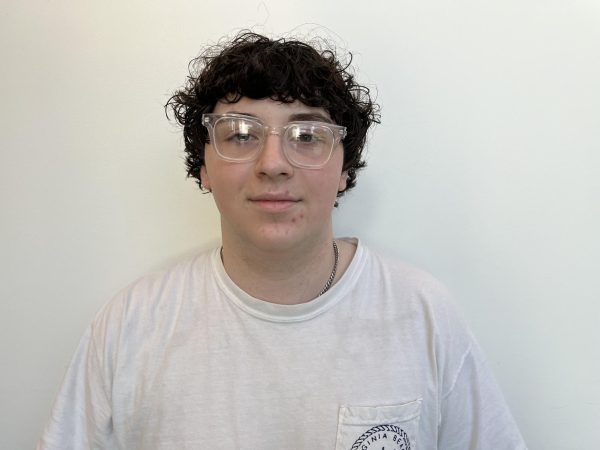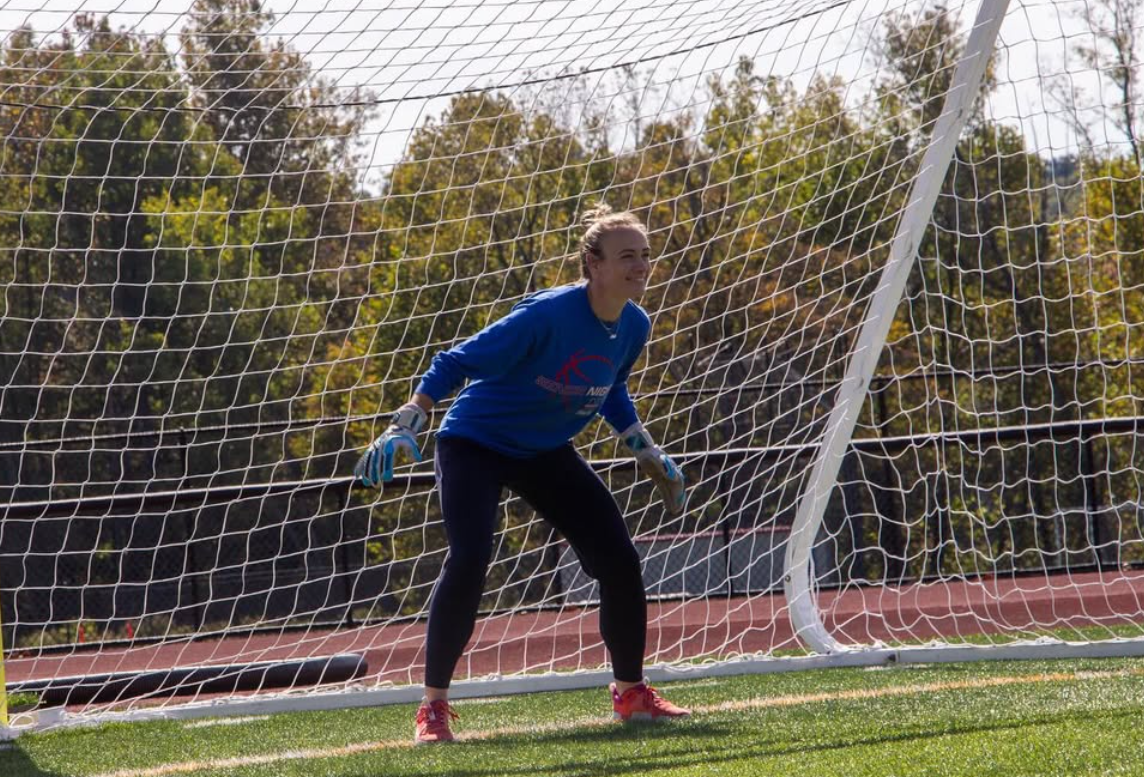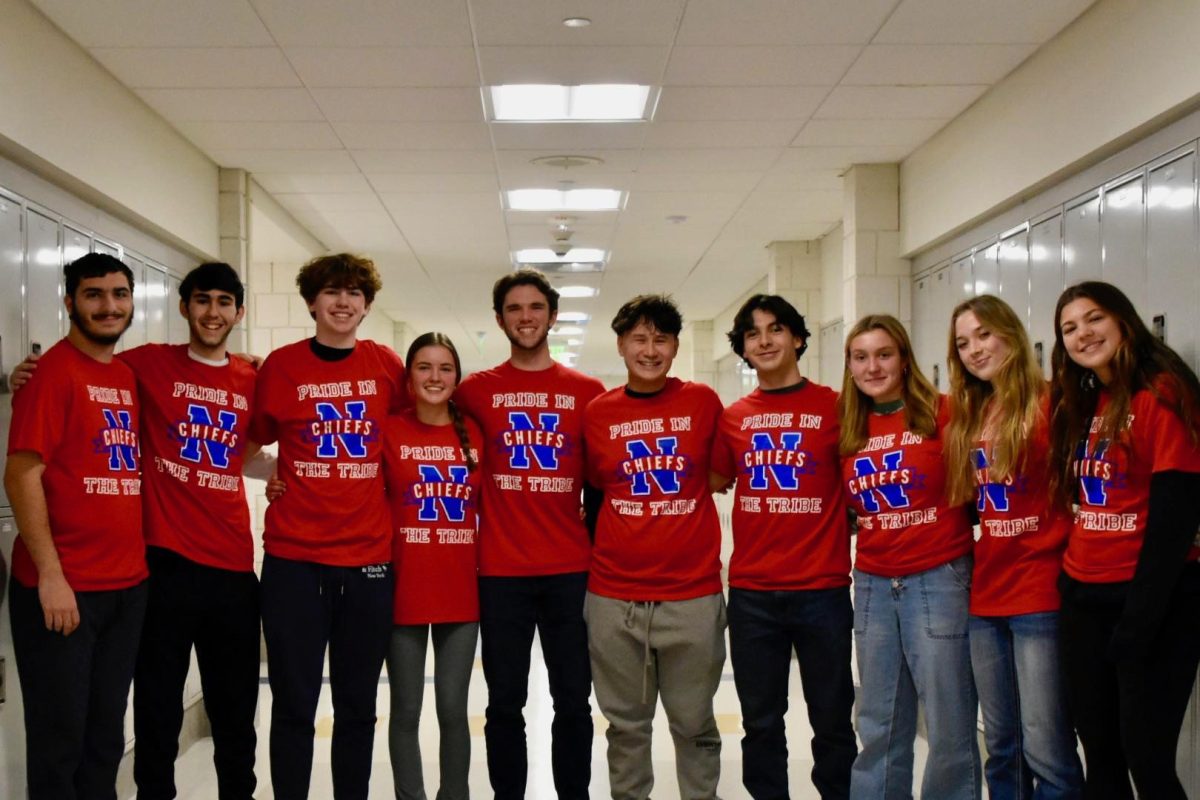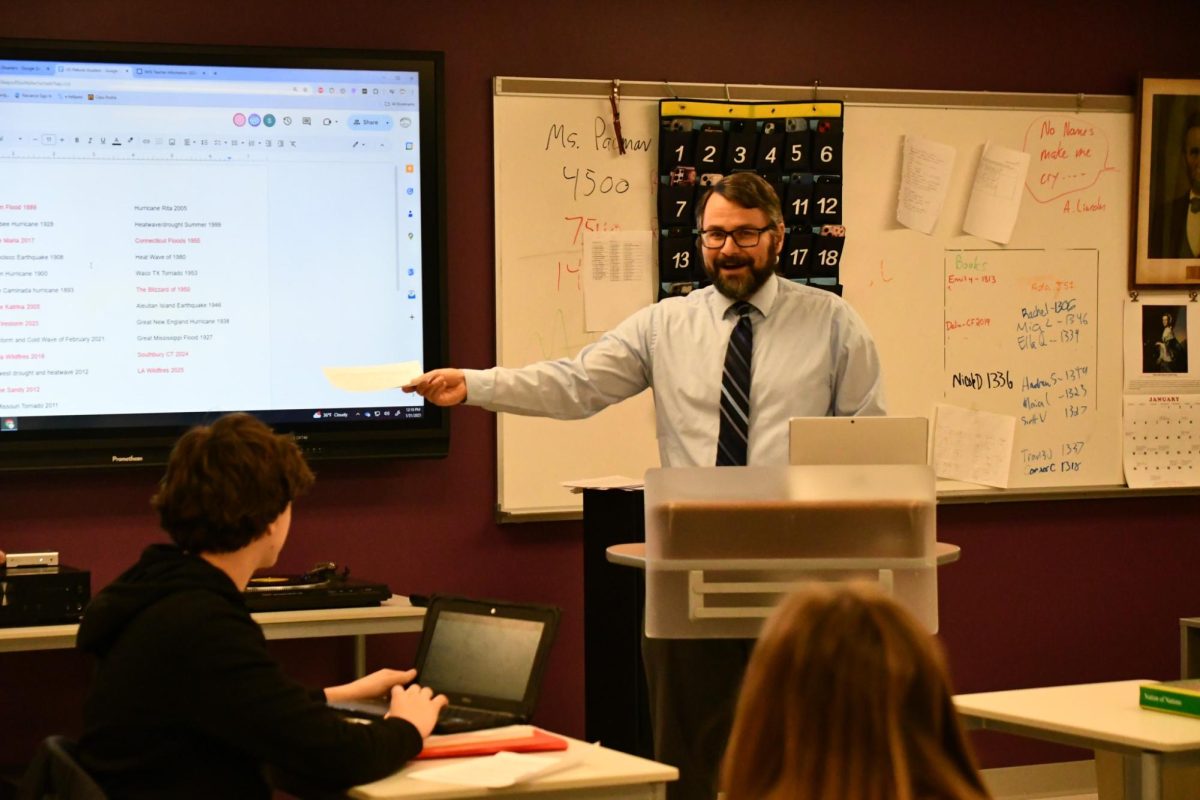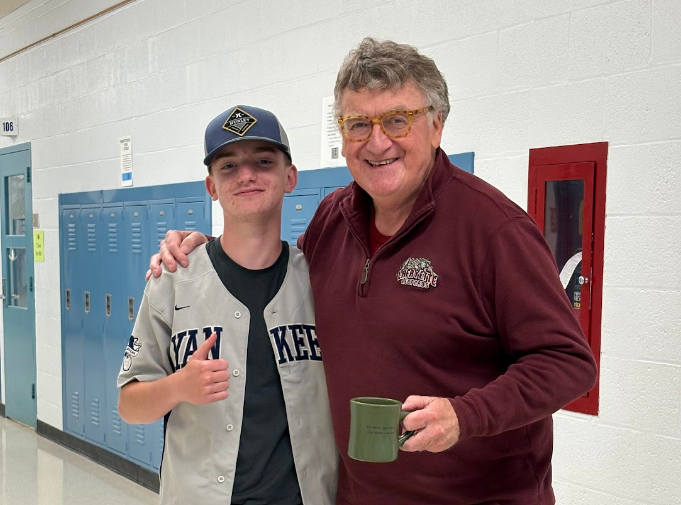WOODBURY — Climbing the stairs of the Connecticut Science Center in Hartford, Woodbury residents may notice something familiar: Nonnewaug’s robot from a 2015 robotics competition that pitted NHS students against teams from all over the world. The team ultimately competed in St. Louis on a national stage.
Team Beta, NHS’ robotics team, has carved out its place as one of the state’s top groups. Each year, the robotics team faces new obstacles designed to challenge individuals at the highest level.
In the 2021 For Inspiration and Recognition of Science and Technology (FIRST) Robotics Competition game, “Infinite Recharge,” robots were tasked with shooting power cells into high and low goals, manipulating a control panel, and hanging on a generator switch.
These challenges were designed to simulate tasks that explorers might face on distant planets in a space-themed setting. The preparation for these tasks involves hours of work, including selecting parts, assembling the robot, and coding to ensure the robot functions correctly. However, even after all is said and done, there are still hours of trial and error before the competition begins.
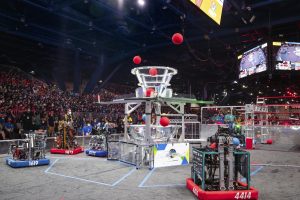
There are two primary advantages of participating in robotics that greatly impact a student’s educational journey.
Firstly, students gain academic benefits by honing their problem-solving skills. These skills are crucial assets for future engineers and professionals. Additionally, the prospect of winning competitions opens doors to valuable scholarship opportunities, significantly reducing the financial burden of pursuing higher education.
Some students can use robotics to explore the field of engineering, such as electrical, mechanical, and computer engineering. With engineering being very competitive, that edge can put young people ahead of the curve in terms of academics and general knowledge.
”It’s good when you’re in the club and you get to exercise the skills you need in engineering, like problem-solving, working with CAD, and programming development, and [it’s] good for learning about areas in engineering you may want to go into,” said Anna Galvani, a senior at NHS and member of the robotics team.
Participating in the FIRST Robotics Competition not only proves cost-effective for students and their parents, but also cultivates invaluable problem-solving skills for aspiring engineers.
Beyond the financial benefits, the experience is deeply rewarding, as emphasized by William Pease, the team’s head coach and advisor.
“It’s a lot of fun, and the time invested is worth it because all your hard work pays off in the end, and your creations come to life in competitions,” said Pease.
This not only creates a sense of accomplishment but also provides a practical application for students to test their knowledge, making it an enjoyable journey for those considering participation. Together, these experiences in robotics offer academic growth, financial opportunities, and hands-on learning for students aiming to build a successful future in engineering.



